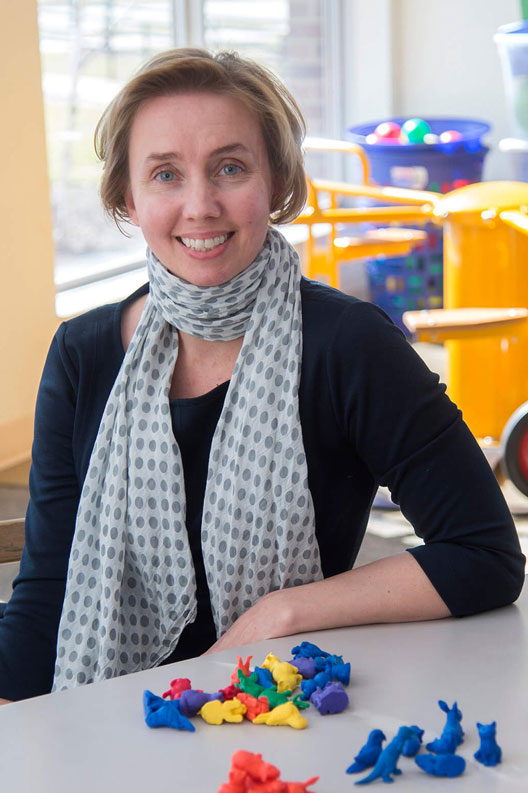Interdisciplinary Purdue Autism Research Center established
There will be more community programs, resources, collaborations and faculty members researching autism, thanks to an expanded program at Purdue University.
The progression of autism support and research at Purdue was triggered by community passions and furthered by administrative support when the Purdue Autism Cluster was created in 2014. It has now culminated in the development of the Purdue Autism Research Center (PARC), which became an official university center in March.

“The Purdue Autism Research Center will help increase Purdue’s involvement and recognition in the field of autism,” said A.J. Schwichtenberg, PARC co-director and assistant professor of Human Development and Family Studies in the College of Health and Human Sciences.
Mandy Rispoli, associate professor of special education in the College of Education, also will serve as co-director.
“PARC provides a mechanism to promote pioneering interdisciplinary autism research. Our hope is that this new center will position Purdue as an internationally recognized leader in autism research,” Schwichtenberg said.
The Purdue Autism Research Center is composed of 20 faculty members from the colleges of Health and Human Sciences, Education, Science and Veterinary Medicine. The center collaborates with the Center for Families, the Center for the Human-Animal Bond and the Institute for Integrative Neuroscience, all at Purdue.
The center not only supports research, collaboration, courses and professional development opportunities at the university, but also sponsors community outreach events, including guest speakers at public events, training for school educators, summer camps, early intervention programs and diagnostic services.
Faculty members associated with the center conduct research on various aspects of autism, including diagnostics, treatment, biological mechanisms, as well as how autism influences individuals and their families across the life course. During the past five years, PARC faculty members have launched 27 research projects and received more than 35 grants from the National Institutes of Health, the National Science Foundation, Institute of Education Sciences and several foundations. With almost 100 graduate and more than 500 undergraduate students involved in this work, PARC is training the next generation of autism interventionists and researchers.
An event to celebrate the new center will be held from 4 to 6 p.m. May 10 at Stewart Center Room 218. The event is open to the public.